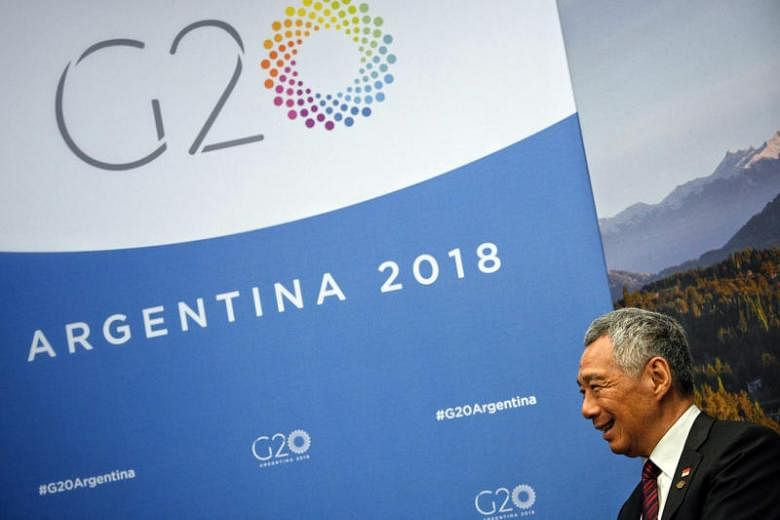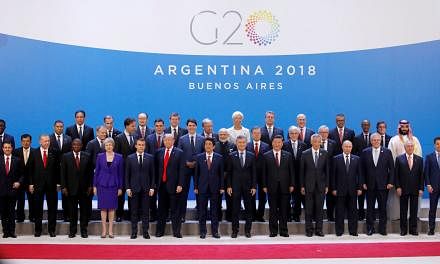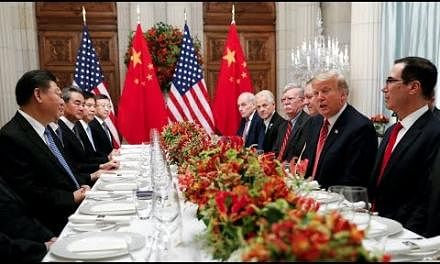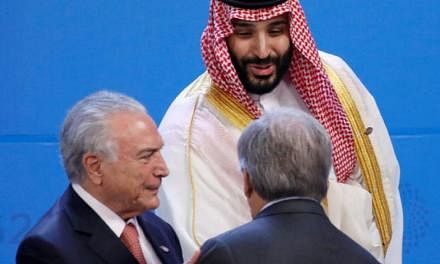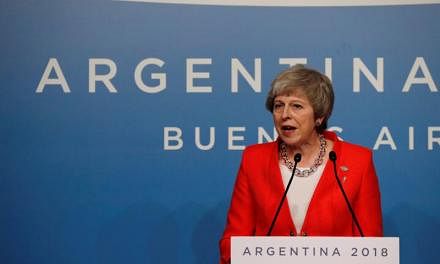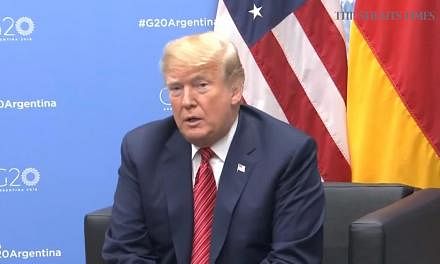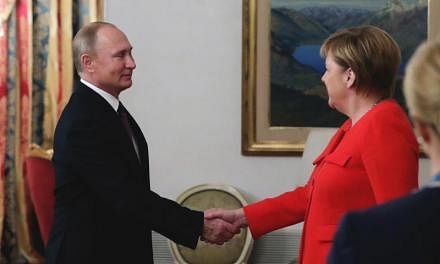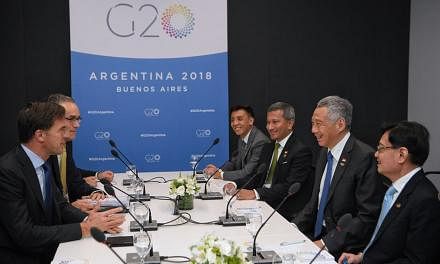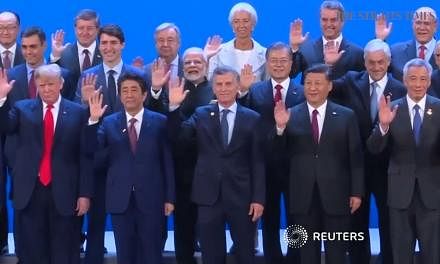BUENOS AIRES - Infrastructure funding programmes like China's Belt and Road Initiative and the US' Better Utilisation of Investment Leading to Development (Build) Act are welcomed, especially by developing countries in Asia, because most countries and international financial institutions are not able to pay for needed infrastructure on their own, said Prime Minister Lee Hsien Loong at the Group of 20 Leaders' Summit on Saturday (Dec 1).
"It is beyond the means of governments to fund all the infrastructure they need. International financial institutions like the World Bank will have a role to play but they won't have enough resources either," said Mr Lee in a brief speech during a session on infrastructure, energy transitions and a sustainable food future.
His comments come two weeks after the United States and China sparred over their infrastructure financing plans at the Asia-Pacific Economic Cooperation (Apec) summit in Papua New Guinea.
US Vice-President Mike Pence warned of plans that drowned countries in a sea of debt or coerced them to give up their sovereignty, without naming China, while Chinese President Xi Jinping said that his country's Belt and Road Initiative was based on partnership and cooperation and would not exclude anyone.
Asean has long been wary of being forced to choose between superpowers. Mr Lee had earlier said on Nov 15, at the Asean Summit in Singapore, that circumstances may come where the regional grouping may have to choose, though he hoped it would not be soon.
Singapore is attending the G-20 summit as a representative of Asean, which it chairs this year, at the invitation of the current G-20 president Argentina. It is also speaking on behalf of an informal group of small and medium-sized states called the Global Governance Group.
In his speech, Mr Lee noted that infrastructure development is a pressing need for all countries, with the Asian Development Bank (ADB) estimating that its developing country members will require US$26 trillion ($35.7 trillion) in infrastructure investment from now to 2030.
Developed countries also need to maintain, upgrade and replace their existing infrastructure, he said.
Mr Lee also spoke about increasing private sector funding of infrastructure, which he said has so far realised "only a fraction of its potential".
Part of the problem, he said, was insufficient resources. Another part was creating the conditions where it was viable for the private sector to participate and for risks to be managed and controlled.
Argentina's concept plan which Singapore contributed to, titled Roadmap to Infrastructure as an Asset Class, offers ways for countries to work together to catalyse private investment, said Mr Lee.
Several useful ideas were also recently offered in a report by the G-20-commissioned Eminent Persons Group, a panel of top economists and leaders chaired by Singapore's Deputy Prime Minister Tharman Shanmugaratnam, added Mr Lee.
These ideas include creating country platforms to bring together international financial institutions like the World Bank, the ADB, and the Asian Infrastructure Investment Bank to work together more coherently and effectively.
Regional platforms that facilitate cross-border infrastructure projects can also be developed, to open up new supply chains and markets, he said.
Mr Lee also cited the Infrastructure Asia Office recently set up in Singapore, which aims to develop, finance and execute infrastructure projects.
"Our role is to match investment demand with investors who have different risk-return preferences, to close the infrastructure gap," he said.
The Infrastructure Asia Office is also working with the World Bank to train public officials to prepare, structure and implement bankable projects, he added.
"Singapore is happy to work with G-20 members on this endeavour, and we look forward to supporting G-20 on its work in this important area in the coming years," said Mr Lee.
